John and Matthew are watching every single live-action film starring Meryl Streep.
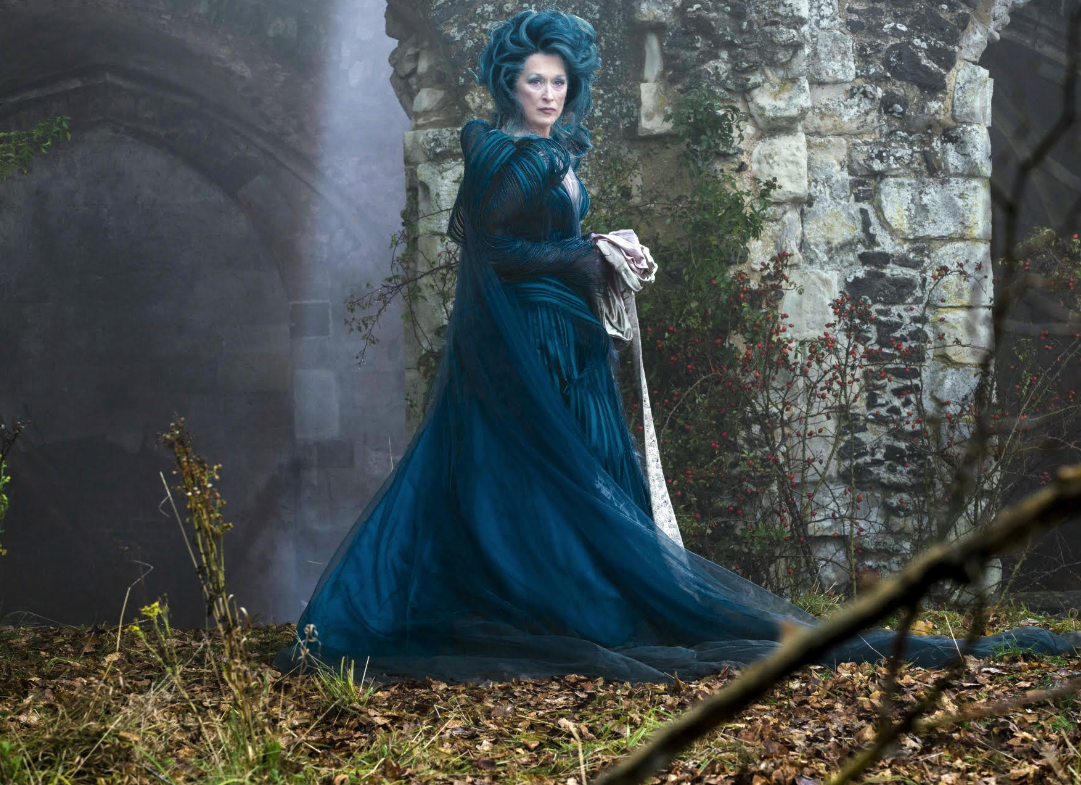
#48 —The Witch, a witch.
JOHN: In his reserved review of the original 1987 Broadway production of Into the Woods, Frank Rich summed up the plot of Stephen Sondheim and James Lapine’s beloved musical as such: “Cinderella and company travel into a dark, enchanted wilderness to discover who they are and how they might grow up and overcome the eternal, terrifying plight of being alone.” Rich noted that, “in remaking Grimm stories, Mr. Sondheim's lyrics and Mr. Lapine's book tap into the psychological mother lode from which so much of life and literature spring.” Sondheim and Lapine’s dextrous, intertwined reimagining of classic Grimm fairy tales, from Little Red Riding Hood to Cinderella, offers a subversively adult version of these hallowed childhood fables and an artistic vision that seems fundamentally at odds with family-friendly Disney, the machine behind Rob Marshall’s 2014 screen translation.
When unhappy fans pressed Sondheim upon the film’s release to defend what felt like a compromised adaptation, he admitted that concessions were in fact happily made to secure a PG rating...
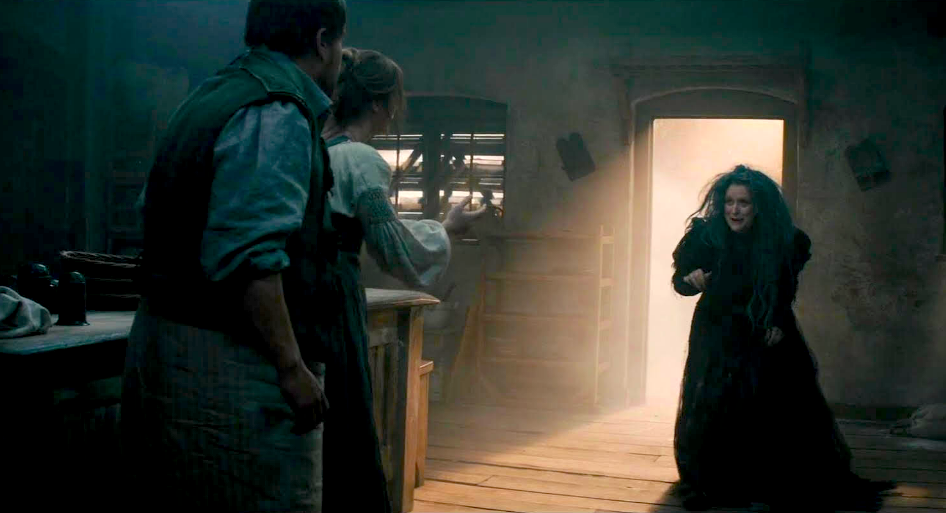
Disney executives’ had concerns about the more mature moments in the story, like the lascivious Big Bad Wolf, Rapunzel’s death, and the suggestive lyrics of the seduction number “Any Moment.” “You will find in the movie that Rapunzel does not get killed, and the prince does not sleep with the [Baker’s Wife]… You know, if I were a Disney executive I probably would say the same thing,” Sondheim confessed. Such reworkings and omissions contribute to an overall sense of limitation and an unfortunate bend toward cliché, the film version of this celebrated musical effectively a filter for the more daring and provocative streaks in the latter’s inventive libretto.
Though compromised and dulled for the mass-market megaplex, Into the Woods is nonetheless an entertaining two-hour divertissement featuring some impressive set pieces and spirited performances. On different missions and propelled by personal desires, characters like Cinderella (Anna Kendrick), Little Red (Lilla Crawford), Jack (Daniel Huttlestone), the Baker (James Corden), and his wife (Emily Blunt) become entangled with one another in the woods as they attempt to find love, escape danger, make trades, and, in the case of Mr. and Mrs. Baker, lift a spell cast by the Witch (Meryl Streep), that will finally allow them to bear children. Many years ago, the Witch placed a curse on the Baker after she caught his father stealing greens from her garden. To reverse the curse and lift the spell, the Witch lays out a challenge for the couple: gather four ingredients for one of her magic potions, i.e. a cow as white as milk, a cape as red as blood, hair as yellow as corn, and a slipper as pure as gold.
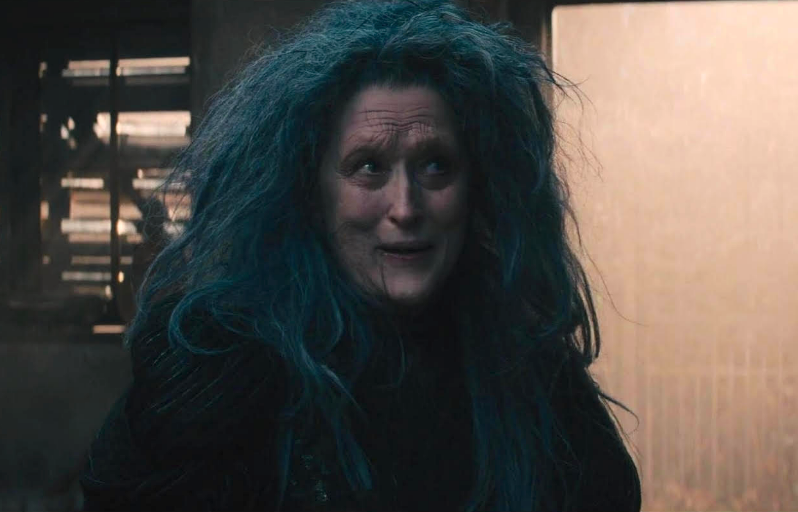
Streep’s ghastly witch catapults herself into the musical’s admittedly virtuoustic 16-minute prologue like a patient finally released from psychiatric care. Her manic, batshit witch pops out of trees, vanishes into thin air, and taunts characters like a rabid dog on the loose, whether playing the antagonist to the Baker and his wife or shielding her “adopted” daughter Rapunzel from the horrors of the real world. Like Sister Aloysius in gothic drag, Streep’s performance is a big, broad plunge into unchecked caricature; she turns the Witch into a perfect vessel for her late-career swerve toward outsized, hammed-up, attention-grabbing roles. If you abandon all logic and just accept that this is Streep’s audition for Drag Race, it can be momentarily fun to watch her bark at Corden and Blunt, exorcise herself into a lather, or get in some face-touching with those decaying, elongated fingernails.
Streep has continually proven incapable of being truly evil on screen, but thankfully this film doesn’t require a witch as wicked as Margaret Hamilton or Anjelica Huston or any of the sorceresses lurking in Suspiria’s coven. Streep’s Witch, like all of her more villainous characters, harbors a deeper hurt and longing that informs her backstory, revealed here in her act two “Lament.” Streep does what she can with her limited screen time by doing the most, delivering a performance at once intriguing but also occasionally embarrassing.
Were you bewitched or befuddled? Take us through some of Streep’s choice scenes.
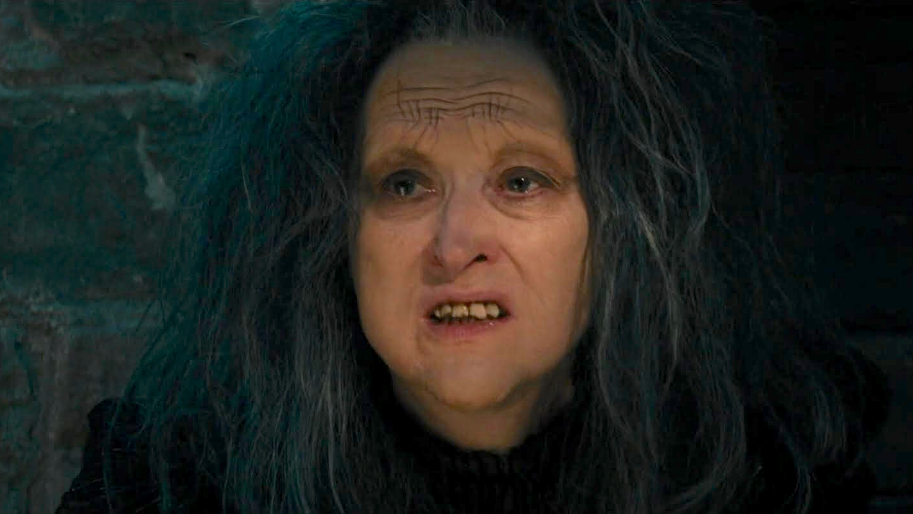
Instead, Streep plays the Witch as an elderly neighborhood kook in one scene and a tepid glamour puss in the next. Streep, joined in this ensemble by BFFs Christine Baranski and Tracey Ullman, probably had a ball during the shoot, but the inventive merrymaking that has enhanced many a Streep performance is seldom evident on screen. Even when covered in J. Roy Helland’s unrivaled prosthetics and Colleen Atwood’s fine-enough frocks, Streep still seems like she is workshopping her ideas for the character with little input behind the camera from Marshall, whose vision of Sondheim’s allegory only becomes more unengaging and extreme in its earnestness when surely some sly cynicism might have helped. Although constructed with vastly greater craft, so many of the Witch’s scenes in Into the Woods resemble Mamma Mia!’s “The Winner Takes It All” number, in which Streep strenuously pantomimes on the edge of a cliff, left to her own devices and forced to fend for herself by lazy directors who assume that Streep’s virtuosity will pick up their slack.
And sometimes it does.
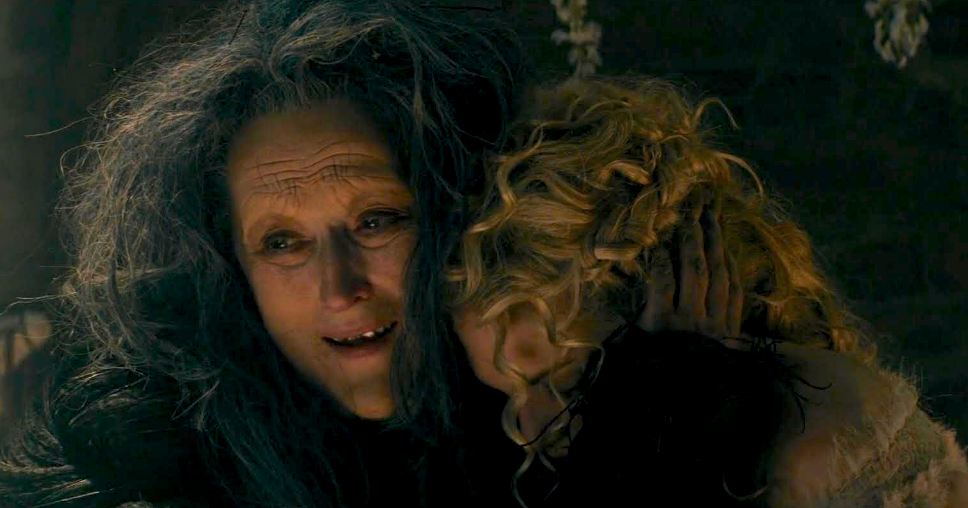
The portrait of love and nurturing that Streep fosters in her scenes with Mackenzie Mauzy’s Rapunzel is more rewarding than the one of envy and malice that we see everywhere else. It’s poignant to watch Streep push against the ceiling of her own considerable vocal abilities during “Stay With Me,” cutting through this cautionary lullaby to give cracked and thundering urgency to a mother’s despairing plea for companionship. Her vocal work elsewhere is less commanding, least of all in the Witch’s iconic entrance, where Streep attempts to pass off Sondheim’s quasi-raps as punchy lines of dialogue, rather than leaning into their rapid, rhythmic quality. And it’s unfortunate that Streep has to compete with a slew of special effects and overbearing sound work to make much of an individual impression during the fuck-you of “Last Midnight,” which Disney’s butchering deletion of Rapunzel’s death robs of its crucial character motivation. “Last Midnight” is one of the great musical theater kiss-offs and should have easily paved the way for a fiery, Streepian tour de force.
But Into the Woods tells a tale that we’ve heard countless times throughout this series, that of an artist’s unequaled talent being badly misused, though never depleted, by directors who mistake their own genuine admiration for close collaboration. These filmmakers seem to do nothing more than stand back and watch Streep with the same slack-jawed awe that she inspires in so many of us, content enough to be in her company and forgetting to shape or challenge her creativity, permitting their film — and their idol’s performance — to suffer in the process.
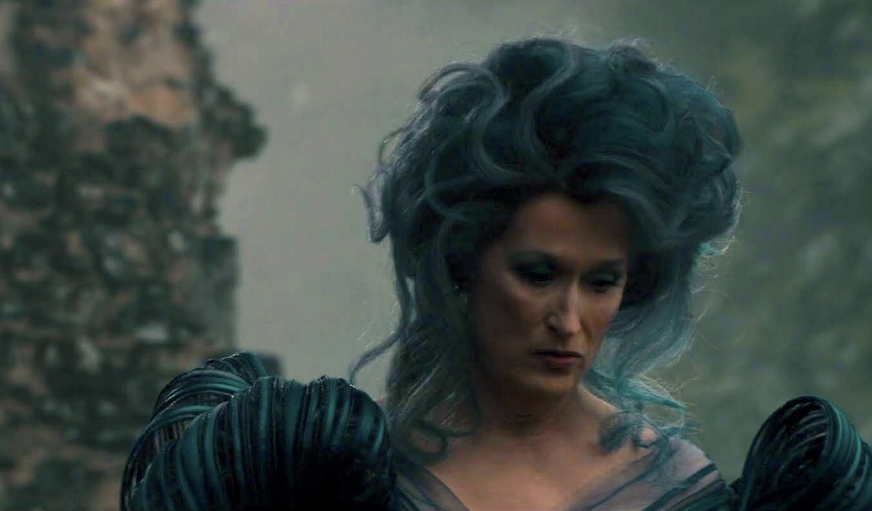
Next week: Ricki & The Flash